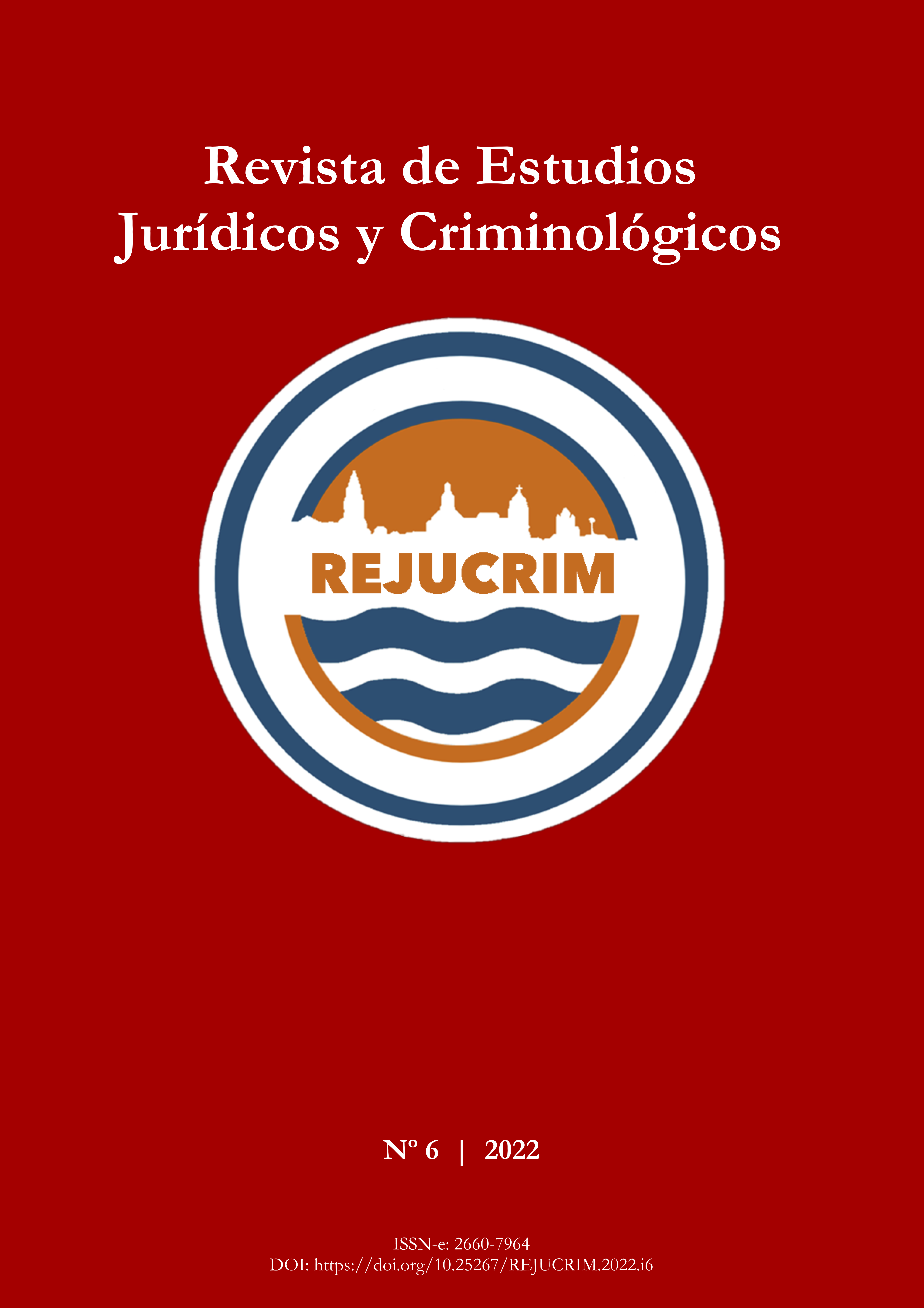The undercover agent and his computer science specialty: pending legislative challenge in a digitized scenario (analysis of the figure in the Draft Law on Criminal Procedure)
Abstract
The figure of the undercover agent in LO 5/1999 was a great advance in the investigation of crime and its incorporation by the Spanish legislator was belated. However, in the almost two decades that have passed, the advances in technology and its use by the criminal world made it clear that the classic undercover agent had to specialise in order to make use of the various information and communication technologies. This figure is introduced into the Spanish criminal procedural system by Organic Law 13/2015, and has allowed the development of undercover computer investigations, which are very necessary in current forms of criminality. However, the gaps and shortcomings of this figure are evident, in its practical application, partly due to the fragmented and scarce regulation of it in the LO 13/2015. There are numerous issues that remain uncovered by the legislator. The Preliminary Draft of the LECrim of 2020 develops a much broader casuistry, with different levels of activity of the undercover computer agent (entry into closed communication channels with a false identity; exchange of illicit files and analysis of algorithms and, finally, capture and recording of images even in the home) and their corresponding judicial authorisations. These questions and others, such as the delimitation of the agent provocateur, are also dealt with in the jurisprudential analysis, which has been completing the doubts and problems generated by the classic undercover agent and the computer agent.
Keywords
Downloads
How to Cite
License
Copyright (c) 2022 Isabel Villar Fuentes

This work is licensed under a Creative Commons Attribution-NonCommercial-NoDerivatives 4.0 International License.
References
ÁLVAREZ ALARCÓN, A., Abogacía y Proceso Penal, “El agente encubierto”, Valencia 2021.
BARRIENTOS PACHO, J Mª, Práctico Procesal Penal (Agosto 2021), recuperado en https://app.vlex.com/#vid/380392994.
BENÍTEZ ORTÚZAR, I. F., El colaborador con la justicia. Aspectos sustantivos, procesales y penitenciarios derivados de la conducta del “arrepentido”, Madrid, 2004.
BUENO DE MATA, Federico. “El Agente Encubierto en Internet: mentiras virtuales para alcanzar la justicia”, Los retos del Poder Judicial ante la sociedad globalizada: Actas del IV Congreso Gallego de Derecho Procesal (I Internacional), Coruña, 2011.
CAROU GARCÍA, S., “Cuadernos de la Guardia Civil”, nº 56, 2018.
ESTRADA POSADA, R. S y SOMELLERA R. en “Delitos informáticos, Informática y derecho”, Revista iberoamericana de derecho informático, 1998.
GASCÓN INCHAUSTI, F. “Infiltración policial y «agente encubierto», Granada, 2001 La Ley penal, núm. 18, enero de 2016.
GRANADOS PÉREZ, C., “Instrumento procesal en la lucha contra el crimen organizado. Agente Encubierto. Entrega vigilada. El arrepentido. Protección de testigos. Posición de la Jurisprudencia”, en La criminalidad organizada. Aspectos sustantivos, procesales y orgánicos, Madrid, 2001.
GONZÁLEZ GARCÍA, S., “La prueba obtenida por el agente encubierto informático: Un examen sobre su validez procesal y constitucional”, La justicia digital en España y la Unión Europea, J. Conde Fuentes y G. Serrano Hoyo (dirs.), Barcelona 2019.
NIEVA FENOLL, J., “El procedimiento de investigación”, Reflexiones en torno al Anteproyecto de Ley de Enjuiciamiento Criminal de 2020, Valencia 2022.
ORTIZ PRADILLO, J. C., “Vigilancias policiales y utilización de dispositivos de seguimiento”, Reflexiones en torno al Anteproyecto de Ley de Enjuiciamiento Criminal de 2020, Valencia 2022.
REY HUIDOBRO, L. F., El delito de tráfico de drogas. Aspectos penales y procesales, Valencia, 1999.
RODRÍGUEZ TIRADO, A. Mª, “Las víctimas menores de delitos de pornografía infantil y de delitos de child grooming y su protección en el proceso penal. Las TICs y las diligencias de investigación tecnológica”, Justicia Revista de Derecho Procesal, núm. 1, 2018.
VELASCO NÚÑEZ E., “Novedades técnicas de investigación penal vinculadas a las nuevas tecnologías”, La Ley Penal, 2016.
VELASCO NÚÑEZ E., “Entregas vigiladas, infiltración y agente encubierto en Internet”, Justicia: Revista de derecho procesal, Núm. 1-2/2010, enero 2010.
VILLAR FUENTES, I., “Reflexiones sobre el agente encubierto informático”, El proceso penal. Cuestiones fundamentales, Coord. FUENTES SORIANO, O., Valencia 2017.
ZAFRA ESPINOSA DE LOS MONTEROS, R., El policía infiltrado. Presupuestos en el proceso penal español, 2010.






